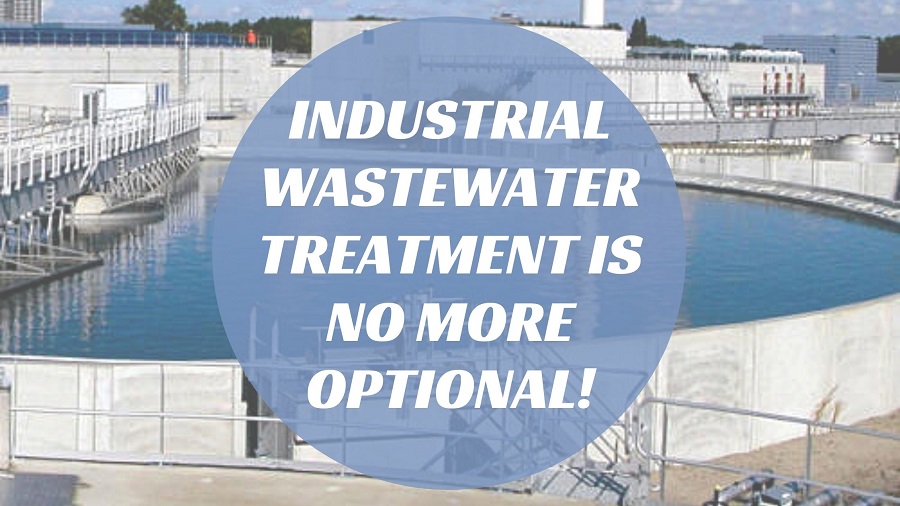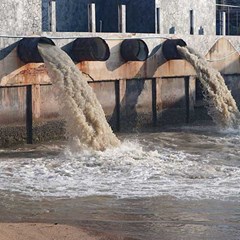Industrial Waste Water Treatment-- Eco-Friendly Solutions for Water Recycling
Industrial Waste Water Treatment-- Eco-Friendly Solutions for Water Recycling
Blog Article
Technologies and Developments in Industrial Waste Water Therapy Technologies
The landscape of commercial wastewater therapy is undergoing a transformative shift, driven by technologies that enhance both effectiveness and sustainability. As regulatory requirements develop, the combination of AI and maker understanding right into wastewater monitoring systems assures to simplify operations and make certain conformity.
Introduction of Waste Water Treatment Technologies
Wastewater treatment technologies encompass a range of methods designed to remove impurities from commercial effluents before their release into the setting. These innovations are important for preserving environmental balance and guaranteeing conformity with ecological guidelines. The main categories of wastewater therapy include physical, chemical, and biological methods, each offering unique functions based on the nature of the impurities present.

Organic therapy approaches employ bacteria to break down natural matter, making them especially reliable for organic-rich effluents. Techniques like triggered sludge and biofilm reactors harness the all-natural destruction capacities of bacteria, leading to considerable reductions in biochemical oxygen demand (BODY)
Advanced Filtration Methods
Advanced filtration methods represent an important advancement in the world of commercial wastewater therapy, boosting the effectiveness of contaminant elimination procedures. Industrial Waste Water Treatment. These approaches encompass a range of modern technologies, including microfiltration, ultrafiltration, nanofiltration, and reverse osmosis, which supply consecutive obstacles for numerous fragment dimensions and chemical frameworks
Microfiltration and ultrafiltration use membrane systems to remove put on hold solids, microorganisms, and bigger organic molecules, improving the quality of effluent before more therapy. Nanofiltration links the space between ultrafiltration and turn around osmosis, successfully eliminating divalent ions and organic compounds, therefore minimizing the tons on downstream processes.
Reverse osmosis supplies the highest degree of purification by allowing just water and little molecules to travel through its semi-permeable membrane layers, making it suitable for redeeming high-quality water from industrial effluents. Current advancements in membrane technology, consisting of the growth of more fouling-resistant and sturdy materials, have actually significantly boosted functional efficiency and reduced expenses.
Integrating these advanced filtration strategies not only boosts the general treatment process yet likewise adds to sustainability initiatives by enabling water reuse and source recovery in commercial settings. (Industrial Waste Water Treatment)
Organic Therapy Advancements

Furthermore, the advancement of engineered biological systems, such as membrane layer bioreactors (MBRs), incorporates biological therapy with innovative membrane filtration. This combination permits for greater effluent top quality and decreased footprint, making it ideal for space-constrained industrial centers. More Info Developments in genetically engineered bacteria have also arised, enhancing the biodegradation of details pollutants, such as pharmaceuticals and hefty steels, that are generally challenging to eliminate.
Additionally, the application of bioaugmentation strategies, where beneficial microbes are presented to boost the existing biological therapy processes, has actually revealed appealing outcomes in improving therapy efficiency. These developments jointly signify a fad towards more lasting and efficient organic treatment methods that can adjust to the evolving complexities of commercial wastewater streams. As sectors remain to focus on ecological compliance, these biological advancements will certainly play a vital duty in wastewater monitoring.

Resource Recovery Techniques
In industrial setups, the integration of source healing methods has actually ended up being increasingly crucial for improving sustainability and minimizing waste. These techniques concentrate on extracting useful products and power from wastewater streams, thereby changing possible toxins right into reusable resources.
One prominent technique is vitamins and mineral healing, where nitrogen and phosphorus, frequently existing in excess in wastewater, are captured and transformed right into plant foods. This not just minimizes environmental influences however additionally provides a circular economic climate option for farming applications. Furthermore, innovations such as anaerobic food digestion enable the conversion of natural waste into biogas, an eco-friendly energy resource that can balance out fossil gas use in commercial operations.
Furthermore, advanced filtration and membrane layer innovations help with the recuperation of commercial by-products such as salts and metals. These recovered products can be rehabilitated right into production processes, lowering the demand for virgin sources.
Future Patterns in Waste Water Monitoring
As industries progressively focus on sustainability, the future of wastewater management is established to go through significant improvements. Technological developments, such as expert system and artificial intelligence, will certainly make it possible for extra reliable monitoring and administration of wastewater systems. These modern technologies click site can anticipate maintenance demands, maximize treatment procedures, and enhance decision-making, eventually reducing operational costs and environmental effect.
Moreover, the integration of round economy principles will play a critical duty in wastewater management. Industries are expected to move towards systems that not only treat wastewater but likewise recover important resources, such as nutrients, water, and power. This change will certainly reduce waste and advertise the reuse of products, lining up with global sustainability objectives.
Emerging treatment techniques, such as membrane bioreactors and progressed oxidation procedures, will additionally boost the effectiveness of wastewater treatment, permitting better effluents ideal for reuse. Additionally, regulatory structures are likely to develop, emphasizing stricter criteria for wastewater discharge and encouraging sectors to adopt ingenious therapy services.
Final Thought
In verdict, the look at here now development of commercial wastewater therapy modern technologies shows a considerable change in the direction of improved performance and sustainability (Industrial Waste Water Treatment). Innovations in innovative purification techniques, organic therapies, and resource recuperation methods highlight the industry's dedication to environmental stewardship.
The landscape of industrial wastewater therapy is undergoing a transformative change, driven by advancements that boost both efficiency and sustainability.Wastewater therapy technologies encompass an array of approaches designed to get rid of impurities from industrial effluents prior to their launch right into the atmosphere.Utilizing the power of organic processes has led to substantial technologies in the therapy of industrial wastewater.Additionally, the implementation of bioaugmentation methods, where helpful microbes are introduced to enhance the existing organic therapy procedures, has actually revealed encouraging results in boosting treatment performance. These advancements jointly represent a pattern towards more sustainable and efficient organic treatment approaches that can adapt to the progressing complexities of commercial wastewater streams.
Report this page